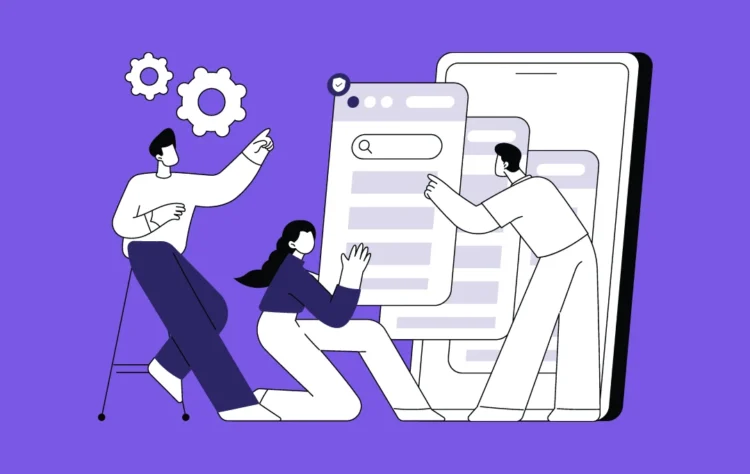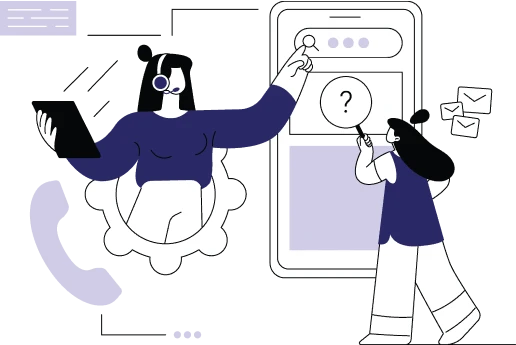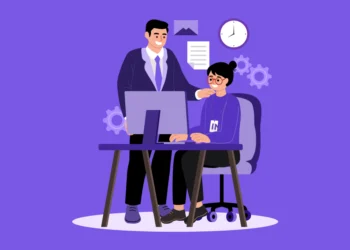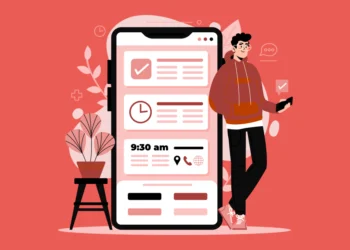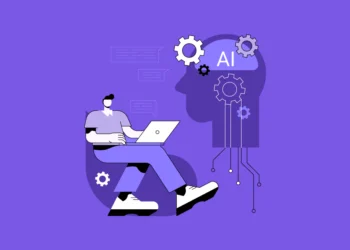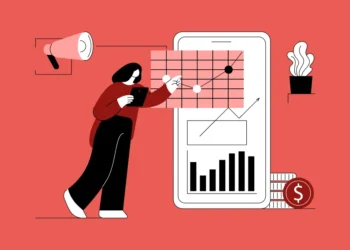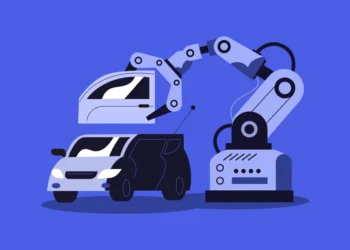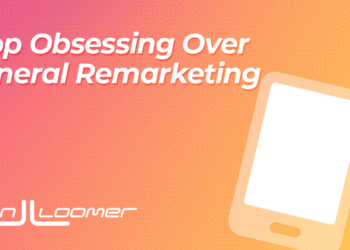According to the International Labour Organization, workplace-related deaths exceed the average annual deaths from road accidents (999,000), war (502,000), violence (563,000), and HIV/AIDS (312,000). An estimated over 2.78 million workers die from work-related accidents annually, with economic losses reaching $2.8 trillion globally.
This staggering reality has widened the eyes of organizations and compelled them to opt for safety observation app development. These apps enable real-time incident reporting, hazard identification, and proactive risk management that actually saves lives.
Companies like ExxonMobil, with their comprehensive OIMS system, and Shell have already invested millions in custom safety observation applications. Shell’s data is particularly compelling—they reported a 71% reduction in fatal incident rates and a 40% decrease in Lost Time Injury rates through their digital safety programs.
But here’s the million-dollar question that keeps entrepreneurs awake at night: How much does it cost to build a safety observation app?
Well, the answer is not straightforward. Development costs vary dramatically based on several critical factors (details later). On average, safety observation app development costs range from $40,000 for basic applications to over $600,000 for enterprise-grade solutions.
This blog post will take you on a detailed journey through the financial landscape of safety observation app development. We’ll explore the key factors that influence the total investment, provide a clear breakdown of costs by complexity and development phase, and offer practical strategies to keep your budget in check.
The total cost to build a safety observation app isn’t a fixed price tag; it’s a dynamic figure determined by a simple formula:
| Development Hours × Developer’s Hourly Rate = Total Cost |
|---|
For example, if an app development company charges $80/hour and your safety app project takes 5,000 hours, the total cost to build a safety observation app would be $200,000, excluding post-launch maintenance and updates.
| $40/hour x 2,500 hours = $100,000 |
|---|
Once you can master this formula, you can plan your budget and estimate the total safety observation app development costs.
Understanding the true cost of safety observation app development requires examining multiple complexity levels and development phases.
Let’s first break down the investment landscape based on different complexity levels:
| App Complexity | Cost Range | Development Timeline |
|---|---|---|
| Simple Apps | $40,000 – $100,000 | 4-6 months |
| Medium Complex Apps | $100,000 – $200,000 | 6-8 months |
| Advanced Apps | $200,000 – $400,000 | 8-12 months |
| Enterprise Grade Apps | $400,000 – $600,000+ | 12-18 months |
What do these categories mean?
The total cost is also the sum of the investments made during each phase of development. A typical project lifecycle includes:
Choosing to invest in safety observation app development is a strategic decision, and the final price tag is influenced by a number of moving parts. Here’s a look at the key factors that will shape your project’s budget.
When we talk about safety improvement application development, design isn’t just about making things look good. Industrial workers need interfaces that function flawlessly in harsh environments like oil rigs, construction sites, and manufacturing floors, where gloves, safety gear, and challenging lighting conditions are the norm.
| Design Complexity | Estimated Cost | Development Time | Key Features |
|---|---|---|---|
| Basic UI/UX | $5,000 – $10,000 | 2-4 weeks | Standard templates, simple navigation, basic forms |
| Moderate UI/UX | $10,000 – $20,000 | 4-8 weeks | Custom elements, interactive components, responsive design |
| Advanced UI/UX | $20,000 – $40,000 | 8-16 weeks | Complex animations, custom icons, advanced interactions |
| Enterprise UI/UX | $40,000 – $60,000 | 16-24 weeks | Brand-specific design, accessibility compliance, multi-language support |
Backend Development Complexity
The backend is the engine of your app. It handles data storage, security, user authentication, and more. For the safety reports observation app development, a robust backend is crucial for handling sensitive information and ensuring data integrity.
| Backend Complexity | Estimated Cost | Key Components | Scalability |
|---|---|---|---|
| Simple Backend | $5,000 – $20,000 | Basic CRUD operations, simple database, REST APIs | Up to 1,000 users |
| Moderate Backend | $20,000 – $40,000 | Real-time notifications, file storage, and user authentication | Up to 10,000 users |
| Advanced Backend | $40,000 – $80,000 | Microservices architecture, advanced analytics, third-party integrations | Up to 100,000 users |
| Enterprise Backend | $80,000 – $100,000 | High availability, disaster recovery, advanced security, custom integrations | Unlimited scalability |
Third-Party Integrations
Connecting your app to other systems, like your company’s existing ERP, CRM, or data analytics platforms, adds significant value but also cost. These integrations enable seamless data flow and a more comprehensive safety improvement application development.
| Integration Type | Cost Range | Implementation Time | Common Examples |
|---|---|---|---|
| Basic Integrations | $5,000 – $10,000 | 1-3 weeks | Email notifications, cloud storage |
| Moderate Integrations | $10,000 – $20,000 | 3-8 weeks | ERP systems, HR platforms, GPS services |
| Advanced Integrations | $20,000 – $30,000 | 8-16 weeks | SCADA systems, IoT sensors, AI/ML services |
| Enterprise Integrations | $30,000 – $100,000 | 16-24 weeks | Custom APIs, legacy systems, compliance platforms |
Security and Compliance Measures
Data privacy and compliance in safety observation apps are non-negotiable. Handling sensitive employee information and incident reports requires a high level of security. Typically, organizations that emphasizes the importance of building “digital trust” are more likely to experience around 10% annual growth. This highlights why robust security is not an expense but an investment.
| Security Level | Cost Range | Implementation Time | Key Features |
|---|---|---|---|
| Basic Security | $10,000 – $20,000 | 2-4 weeks | SSL encryption, basic authentication |
| Moderate Security | $20,000 – $40,000 | 4-8 weeks | Multi-factor authentication, data encryption, role-based access |
| Advanced Security | $40,000 – $70,000 | 8-16 weeks | End-to-end encryption, advanced threat detection, security auditing |
| Enterprise Security | $70,000 – $150,000 | 16-24 weeks | Zero-trust architecture, compliance frameworks (SOX, GDPR), penetration testing |
Platform Selection Impact
Do you want an app for iOS, Android, or both? A native app offers the best performance but requires two separate development cycles. Cross-platform frameworks like Flutter or React Native can save time and money by using a single codebase. Choosing between native, hybrid, or cross-platform development significantly affects safety improvement application development costs, and user experience.
| Platform Strategy | Cost Range | Pros | Cons |
|---|---|---|---|
| iOS Only | $5,000 – $150,000 | Optimized performance, premium user base | Limited market reach |
| Android Only | $15,000 – $30,000 | Larger market share, diverse device support | Fragmentation challenges |
| Cross-Platform | $30,000 – $50,000 | Code reusability, faster time-to-market | Performance compromises |
| Native (Both) | $80,000 – $400,000 | Best performance, platform-specific features | Higher development cost |
Technology Stack Considerations
Your tech stack in safety observation app development choice ripples through every aspect of your project—from initial development speed to long-term maintenance costs and scalability potential. Choosing the right tech stack for safety observation apps directly influences both development costs and long-term maintenance expenses.
| Technology Category | Budget Impact | Popular Choices | Estimated Cost |
|---|---|---|---|
| Frontend Frameworks | 15-20% of the total cost | React Native, Flutter, Swift, Kotlin | $5,000 – $20,000 |
| Backend Technologies | 25-30% of the total cost | Node.js, Python Django, .NET Core | $20,000 – $40,000+ |
| Database Solutions | 10-15% of the total cost | PostgreSQL, MongoDB, AWS RDS | $40,000 – $80,000+ |
| Cloud Infrastructure | 10-20% of the total cost | AWS, Google Cloud, Microsoft Azure | $80,000 – $120,000+ |
Features of a Safety Observation App
The features of a safety observation app are the primary drivers of its cost. The more you want your app to do, the more features you need to integrate and the more you’ll have to pay. Some popular features include:
- Safety Observation Checklist Development: Digital checklists with photo and video attachment options.
- Incident Reporting: A simple, quick way for employees to report near-misses and incidents.
- GPS Tracking: Geotagging observations to pinpoint exact locations.
- Offline Mode: Allowing workers in remote areas to file reports without an internet connection.
- Advanced Analytics: A dashboard for management to track trends, identify hotspots, and make data-driven decisions.
- AI Integration: Using AI to predict potential hazards based on historical data.
| Features of a Safety Observation App | Features Complexity | Estimated Cost |
|---|---|---|
| Basic Features | Incident reporting, photo/video capture, basic user management, media attachments (photo/video capture) | $5,000 – $12,000 |
| Moderate Features | Advanced analytics, integration with systems, automated workflows, location reporting (GPS tagging) | $10,000 – $20,000 |
| Advanced Features | AI-powered risk assessment, predictive analytics, advanced customization, action tracking | $20,000 – $50,000 |
| Enterprise-Level Features | Real-time data analysis, multi-location support, location reporting (GPS tagging), compliance reporting, action tracking | $50,000 – $100,000+ |
Hidden Costs in Safety Observation App Development
While the development phase gets the most attention, a significant portion of your budget will go toward other essential aspects. Overlooking these can lead to a nasty surprise down the line, leading to an increase in your enterprise safety observation app development budget.
Ongoing Maintenance: The Cost That Never Stops
Let’s be clear about something: launching your app is just the beginning. The real costs start piling up after launch when you need to keep everything running, secure, and up-to-date. This is the app maintenance costs.
| Maintenance Type | Annual Cost of Development | Key Activities |
|---|---|---|
| Basic Maintenance | 15-20% | Bug fixes, security patches, OS updates |
| Feature Updates | 20-25% | New functionality, UI improvements |
| Major Upgrades | 25-35% | Technology stack updates, redesigns |
Infrastructure and Hosting: The Bills That Keep Coming
The features of safety observation apps determine your hosting requirements, but the costs add up quickly when you’re dealing with real-time data processing and high-availability requirements.
| Infrastructure Level | Estimated Monthly Cost | Estimated Annual Cost | Scalability |
|---|---|---|---|
| Basic Hosting | $500 – $2,000 | $6,000 – $24,000 | Up to 1,000 users |
| Moderate Infrastructure | $2,000 – $8,000 | $24,000 – $96,000 | Up to 10,000 users |
| Enterprise Infrastructure | $8,000 – $25,000+ | $96,000 – $300,000+ | Unlimited scalability |
Legal and Compliance: The Unavoidable Reality
Data privacy and compliance in safety observation apps extend far beyond the initial development phase. These ongoing costs are critical for maintaining legal compliance and avoiding costly violations.
- Legal Consultation: $10,000 – $50,000
- Compliance Audits: $15,000 – $75,000 annually
- Insurance Coverage: $5,000 – $25,000 annually
- Data Protection Officer: $80,000 – $150,000 annually (enterprise)
Cost Optimization Strategies for Safety Observation App Development
Nobody wants to overspend on safety observation app development cost, but cutting corners in the wrong places can backfire spectacularly. Here are proven strategies that actually work for reducing costs without compromising on quality or functionality.
Developing a Minimum Viable Product (MVP)
Instead of building a feature-rich, complex app from the start, begin with a simple MVP. An MVP focuses on the core features—like a safety observation checklist app development—that solve the most pressing problems. This allows you to launch faster, gather user feedback, and iterate based on real-world use. It’s a cost-effective approach to validate your idea and build a better product over time.
MVP Features for Safety Apps:
- Basic incident reporting
- Photo/video capture
- Simple analytics dashboard
- User authentication
- Basic notifications
| MVP Development Cost: $40,000 – $80,000
Time to Market: 3-5 months |
|---|
Cross-Platform Development Benefits
Choosing a tech stack for safety observation app development wisely can slash your budget significantly. Cross-platform frameworks like React Native or Flutter offer compelling advantages:
- Cost Reduction: 30-40% compared to native development
- Faster Time-to-Market: 25-35% reduction in development time
- Code Reusability: 70-80% code sharing across platforms
- Maintenance Efficiency: Single codebase for updates
Prioritizing Necessary Features
Work with your development partner to define a clear list of must-have versus nice-to-have features. For your initial safety observation app development, focus on the functionalities that will provide the most value, such as a simple reporting system and a digital safety observation checklist app development. You can always add more complex features later.
| Tier 1 (Basic Ones) | Tier 2 (Must-Have) | Tier 3 (Nice-to-Have) |
|---|---|---|
| Incident reporting and documentation | Advanced analytics and dashboards | AI-powered risk assessment |
| Photo/video evidence capture | Integration with existing systems | Predictive analytics |
| Basic user management | Automated workflows | Advanced customization options |
| Compliance reporting | Multi-language support | Social collaboration features |
Outsourcing to Cost-Effective Regions
The location of your development team is one of the biggest factors affecting cost. While a veteran IT company in the UK and the US claims delivering to a high-standard applications, the reality is that the same level of expertise can often be found in regions like Eastern Europe and Asia at a fraction of the cost. A skilled safety observation mobile application company in one of these regions can deliver exceptional quality without the high price tag of Western markets.
Here’s a brief breakdown of average hourly rates for safety observation app development across the different regions:
| Region | iOS (Avg. $/Hr.) | Android (Avg. $/Hr.) | Cross-platform (Avg. $/Hr.) |
|---|---|---|---|
| India | 22–90 | 15–25 | 20–30 |
| Southeast Asia | 23–55 | 30–45 | 30–45 |
| Asia | 25–35 | 20–30 | 25–35 |
| Middle East | 30–70 | 35–60 | 30–70 |
| Europe | 35–55 | 35–55 | 30–50 |
| Ukraine | 40–78 | 38–60 | 40–78 |
| South Africa | 45–80 | 40–80 | 40–80 |
| Latin America | 28–90 | 28–90 | 40–160 |
| USA | 60–120 | 60–120 | 60–130 |
| UK | 60–75 | 60–75 | 55–75 |
| Canada | 90–120 | 80–140 | 90–120 |
| Australia | 90–120 | 100–120 | 90–120 |
How to Develop a Safety Observation App: Step-by-Step Process
Developing a successful safety observation mobile app is a multi-step process of systematic planning and seamless execution. Here’s a brief overview of the steps involved to develop safety observation mobile apps:
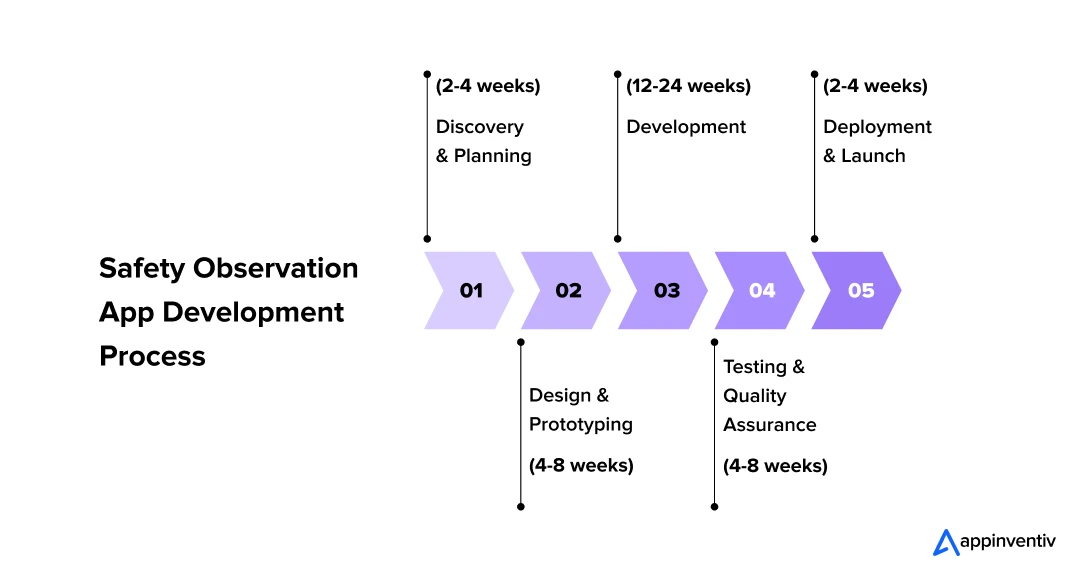
Discovery and Planning (2-4 weeks)
Before writing a single line of code, you need to understand exactly what you’re building and why. Thus, this initial stage includes:
- Stakeholder interviews
- Requirements gathering
- Technical feasibility analysis
- Project roadmap creation
Design and Prototyping (4-8 weeks)
Industrial environments demand intuitive interfaces that work under pressure. This phase defines how users will interact with your specific types of safety observation apps.
- User journey mapping
- Wireframe creation
- UI/UX design
- Interactive prototypes
Development (12-24 weeks)
This is where your use cases of safety observation app come to life through code. The duration depends heavily on complexity and feature requirements.
- Backend development
- Frontend development
- Database implementation
- API development
Testing and Quality Assurance (4-8 weeks)
Before you bring your product to the market, you must test it against different criteria to ensure its uninterrupted performance on various devices.
- Functional testing
- Security testing
- Performance testing
- User acceptance testing
Deployment and Launch (2-4 weeks)
Having assured about the app quality, the next step is to bring your app to the workplace and ensure a safe working environment.
- App store submission
- Server deployment
- Go-live support
- Post-launch monitoring
Ready to transform your safety operations idea into a custom mobile app?
Contact Appinventiv today for a personalized consultation, detailed cost estimate, and expert assistance.
What Are the Different Types of Safety Observation Apps?
Before you jump into the venture of safety observation app development, you must know exactly what type of app you need to build. Safety observation apps come in various forms, each designed to meet the specific needs of different industries. Below is an overview of the most common types of safety observation apps and how they address industry-specific requirements.
| App Type | Features | Example |
|---|---|---|
| Basic Safety Observation Apps | Quick hazard reporting, photo uploads, simple interface | SafetyCulture (iAuditor) |
| Real-Time Incident Management Apps | Task assignments, instant alerts, real-time incident tracking | Rumbix |
| Risk Assessment & Safety Inspection Apps | Customizable checklists, safety audits, reporting tools | GoCanvas |
| Compliance Management Apps | Regulatory tracking, safety audits, industry standard compliance | Cority |
| Employee Wellness & Monitoring Apps | Fatigue tracking, wearable integration, health monitoring | Honeywell’s SafetySuite |
| Advanced Predictive Safety Apps | AI, machine learning, proactive hazard identification | Predictive Safety |
| Customizable White-Label Safety Apps | Fully customizable, multi-feature apps with branding capabilities | PPE Tracker |
Also Read: How Much Does it Cost to Build a Corporate Wellness App?
Revenue Models for Safety Observation Apps
While most companies build a safety observation app for internal use, there are several monetization strategies if you are building one for the wider market. Understanding monetization strategies helps justify the cost breakdown of safety observation mobile app investments.
- Subscription Model: Offer different tiers of access with varying features and user limits.
- Freemium: Provide a basic, free version of the app and charge for premium features.
- One-Time Purchase: Charge a single fee for the app download.
- Custom Enterprise Plans: Offer tailored packages for large corporations with specific needs for enterprise safety observation app development.
Why Partner with Appinventiv for Safety Observation App Development
The cost of safety observation app development can seem daunting, but it’s an investment in your company’s most valuable asset: it’s your staff, your assets. So, are you ready to give your workforce a safe and secure environment to work in and thrive?
If yes, Appinventiv’s team of over 1,600 skilled tech specialists is here to help bring your vision to life.
With a proven track record of delivering 3,000+ successful projects, we have helped businesses across industries such as construction, oil & gas, energy, manufacturing, and healthcare gain a safe working environment.
From initial ideation to deployment and ongoing maintenance, we offer end-to-end mobile app development services. Whether you need a simple mobile app for hazard reporting or an enterprise-grade solution with the power of AI, IoT, and real-time monitoring, we stand by you at every step.
For example, we helped ActiDrive build an IoT-enabled gesture-recognition application designed to promote distraction-free driving in the automobile industry. This application allows drivers to control their mobile devices using gestures, keeping their focus on the road while ensuring safety.
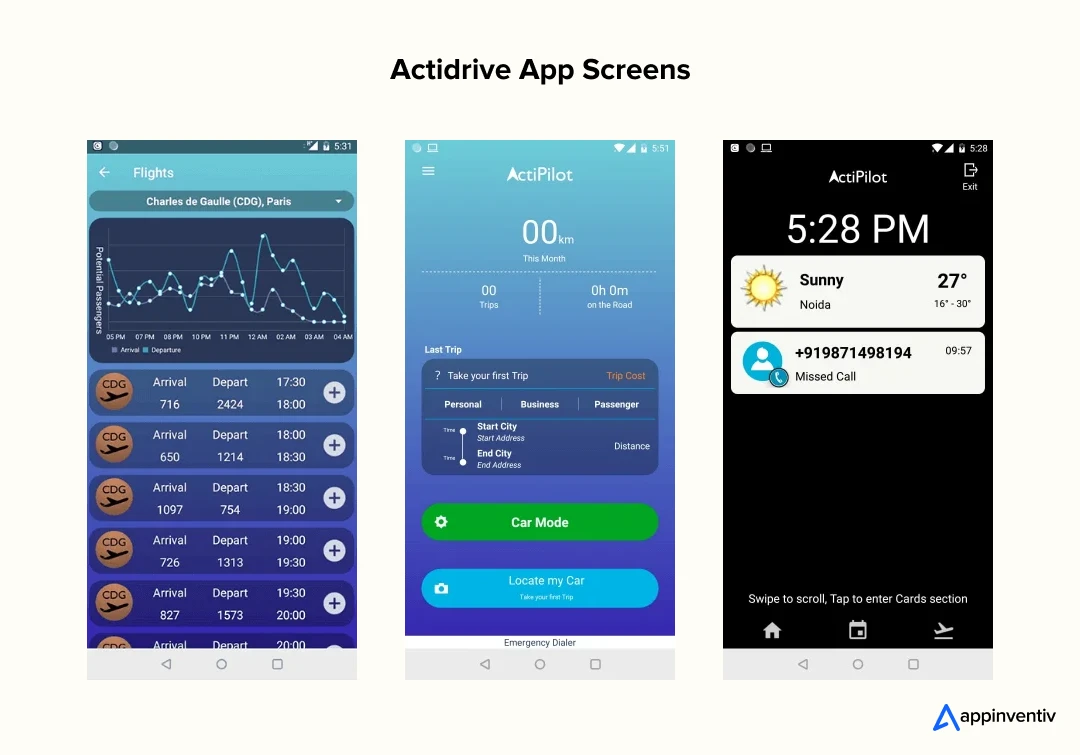
Workplace safety transformation starts with the right technology partner. Don’t let the potential safety observation app development cost deter you from creating a safer workplace. Outsource the best mobile app development services and build a failsafe safety improvement application now.
Our Development Expertise
- 150+ Mobile Apps delivered across industries
- 97% Client Retention Rate
- Average 4.8/5 Star Rating on Clutch
- ISO and CMMI level 2 Certified development processes
Technical Excellence
- Expertise in safety-critical systems
- Advanced security implementations
- Compliance with industry standards
- Scalable architecture design
Cost Optimization:
- Transparent communication and pricing models
- No hidden development costs
- Flexible engagement options
- ROI-focused development approach
Contact Appinventiv today to discuss your safety observation app requirements and receive a detailed cost estimate tailored to your specific needs.
FAQs
Q. How much does it cost to build a safety observation app?
A. On average, the safety observation app development cost ranges from $40,000 to $600,000+. For instance:
- Basic application development costs – $40,000 – $100,000
- Medium complex app development costs – $100,000 – $200,000
- Advanced app development costs – $200,000 – $400,000
- Enterprise-grade applications costs – $400,000 – $600,000+
This estimated cost range varies depending on various factors and your unique project requirements.
Discuss your project idea with us and get a more precise cost estimate.
Q. How long does it take to develop a safety observation app?
A. Safety observation app development timeline varies based on app complexity, expertise of the app development company, and the features of safety observation app. For instance,
- Simple applications require 4-6 months
- Medium-complex apps need 6-8 months
- Advanced solutions take 8-12 months
- Enterprise-grade applications require 12-18 months.
Contact us to know an estimated timeline for your safety observation app development, tailored to your unique workplace safety requirements.
Q. How can a safety observation app improve safety culture?
A. Safety apps transform workplace culture by making incident reporting convenient (2 minutes vs 30 minutes of paperwork), providing real-time data visibility for pattern recognition, and enabling proactive hazard identification. Shell achieved a 71% reduction in fatal incidents and 40% decrease in Lost Time Injury rates through digital safety programs.
Key improvements:
- Faster incident response and prevention
- Increased employee engagement in safety activities
- Data-driven decision making with actionable insights
- Enhanced regulatory compliance and audit trailsQ
Q. How to choose an app development company for safety observation apps?
A. Stay aware of the following points to choose the best development partner for building a safety observation app
- Search for companies with proven safety app experience, regulatory compliance knowledge (OSHA, ISO 45001), and security certifications (ISO 27001, SOC 2).
- Evaluate their enterprise safety observation app development portfolio, client testimonials, and integration capabilities with existing systems.
- Look for must-haves: Safety app portfolio, industry certifications, enterprise integration experience
- Avoid red flags: No safety expertise, unrealistic timelines, cheapest pricing without quality backing
Appinventiv ensures delivering foolproof safety apps with a 100% compliance rate and zero security breaches.
Q. How to keep app development costs within budget?
A. You can follow these smart strategies to keep app development costs within budget:
- Start with MVP – saves 40-60% initially
- Use cross-platform development – 30-40% cost reduction
- Strategic outsourcing – 40-70% savings with experienced teams
- Phased rollouts – spread costs over time
Q. What are the steps to develop a safety observation mobile app?
A. The steps to develop a safety observation mobile app are as follows:
- Define Requirements
- Design the User Interface
- Choose the Tech Stack
- Develop the App
- Test the App
- Deploy the App
- Upgrade and Maintain

